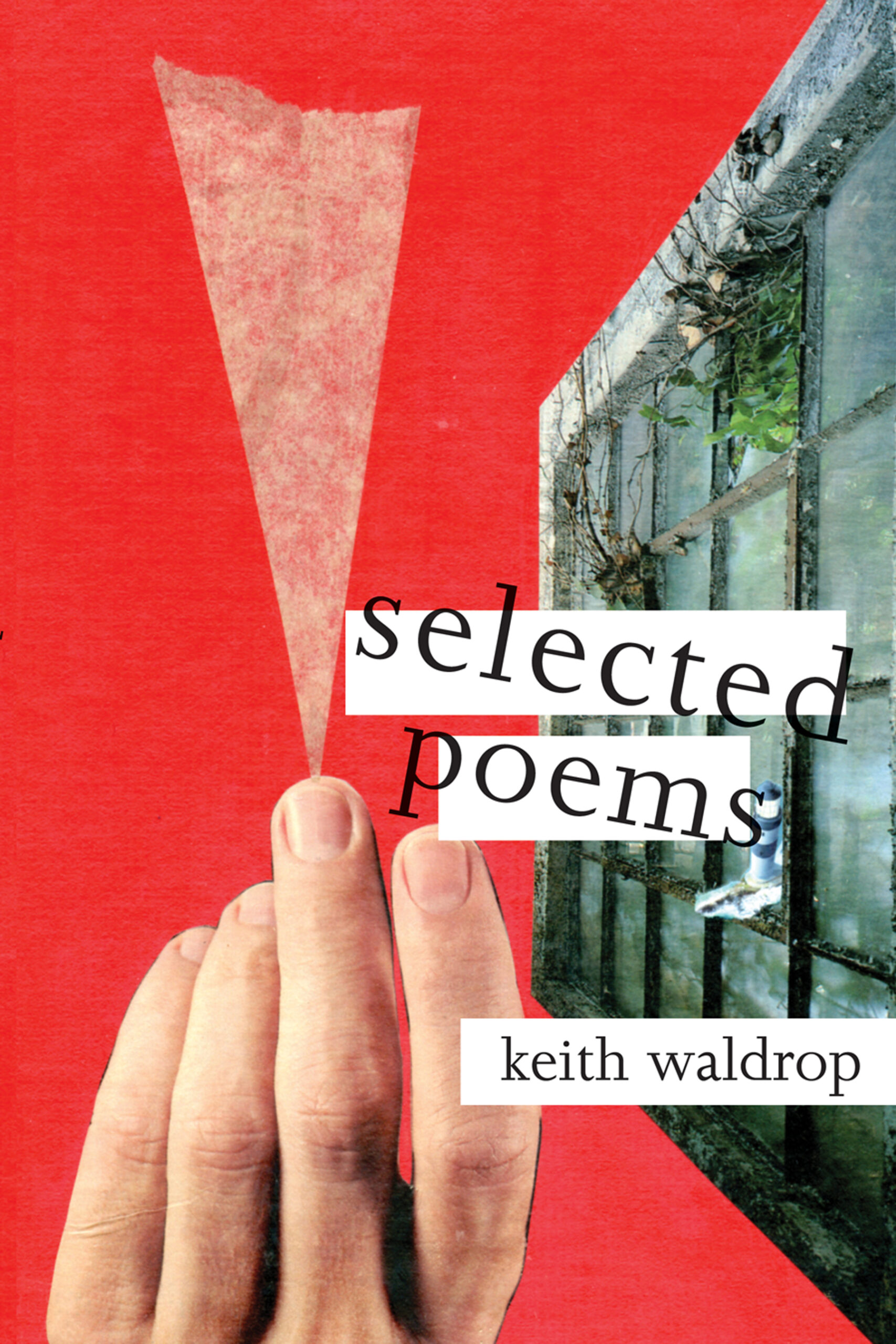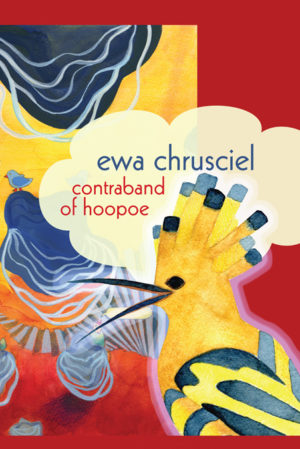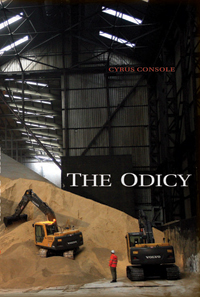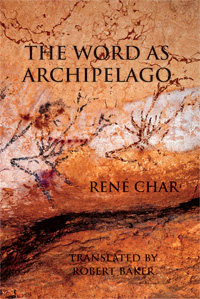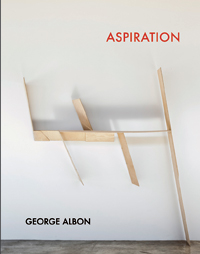Description
Keith Waldrop is a quiet major poet, a major poet of quiet. His accomplishment is difficult to describe because his work refuses, in Bartelby-like fashion, the twin traps of impassivity and affectation: “On my one hand, / stasis—on the / other, striving for effect.” In one of his very few interviews, Waldrop says: “I think the worst fault a poem can have is striving for effect.” Waldrop never strives; instead, he haunts—his presence is all the more powerful for barely being there, like a ghost you discover in a familiar photograph.
Keith Waldrop has some affinities with ancient theologians tasked with the impossible proof of God while watching a spider spinning a web: “support for a god or / perch for a bird”. The poems are ruminative and meditative, attentive to things (glockenspiels, sundials, a widow’s walk, Orion, “blob-like clouds”) only to see them effervesce into their associative nets: Whitman meets Kant. At one point he describes his work as a “diary in memory,” and with this generous selection of poems from Waldrop’s long and distinguished career we are fortunate to remember the life he lives (has lived) through language. “I /would never give up anything I have, in /return for mere certainty.”
Michael Davidson, author of Bleed Through: New and Selected Poems
This gathering of Keith Waldrop’s poems written between 1968-2013 provides point-instants of light–taut messages whose music holds flesh to the bone. Deeply devoted to the local and particular, Waldrop reveals, for instance, the consonance between his home city and the meaning of providence as the doctrine of an election over which one has no control. In these subtle, haunted poems, even punctuation can be transcendently attended through the ear. Reading this taut work filled with wordplay and insight, I recover memory traces present in “a little comma or/slightest/ pause.” This collection is a quiet splendor.
Susan Howe, author of Spontaneous Particulars: The Telepathy of Archives
About the Author
Reviews
Excerpt
Keith Waldrop (born Emporia, Kansas, 1932) retired from Brown University in Providence, RI, where he still lives and, with Rosmarie Waldrop, is editor of the small press Burning Deck. His recent poetry books are The Not Forever (Omnidawn), Transcendental Studies (University of California Press, National Book Award 2009), The Real Subject (Omnidawn) and a trilogy: The Locality Principle, The Silhouette of the Bridge, and Semiramis If I Remember (Avec Books). Siglio has published a book of collages, Several Gravities. His novel, Light While There Is Light, has been reissued by Dalkey Archive. He has translated Baudelaire’s Flowers of Evil and Paris Spleen (Wesleyan University Press) as well as books by contemporary French poets Anne-Marie Albiach, Claude Royet-Journoud, Paol Keineg, Dominique Fourcade, Pascal Quignard, and Jean Grosjean.
A brief interview with Keith Waldrop
(conducted by Rusty Morrison)
It is such an honor to be the publisher of your selected. When you offered Omnidawn this work, I couldn’t believe our great good fortune. In these pages are so many of the poems that are, for me, essential reading; I believe they are essential reading for any poet. And I’m delighted to see in this work a selection of the poems from THE NOT FOREVER, which Omnidawn published in 2013. As I wrote in the book description for that work, “these poems take not only mortality, but also the impossibility of truly assessing mortality, as their endlessly inexplicable subject.” These poems “assess the quintessentially human inability to exact knowledge from the existence that we live, as well as from the inexistence that we each are veering toward.” The poems frightened me, and yet they ‘friend-ed’ me too: they are ferociously generous in their candor. Since those poems offer a reader some of your recent work, can you tell me a little about your intentions for that book?
I think you have gotten the book right. I couldn’t express it better.
Here’s a very wide open question! Is there something you might say about your poems, some sense about them that you might want to express, since this is a selection from all your work?
All my poems are about the self-evident, about the givens of experience, poems of the ground rather than of the figure. They point to transitions, those edges from which we infer things—and a world of things.
(The ground referred to is not the invisible, merely the unseen.)
They assume the truth of Whitehead’s claim (in arguing the kinship of poetry and philosophy): “Our understanding outruns the ordinary usages of words.”
I wonder if you could speak to the ways that individual poems or a series of poems will evolve into a book length work, how a project evolves for you?
By the time I think in terms of a project, that is of a book, many of the poems were either more or less finished or in progress. Or, for a large part, were simply words or phrases that might possibly go somewhere in something I might (eventually) write. Gradually some words gathered into lines and I tried to see where they were leading me and to what extent they might suggest lines, and then poems.
Much of what I collect in this manner is eventually dumped and other parts are put aside for later looks. This sort of thing goes on continually and I have large batches of what may turn out to be used some other time.
I am usually slow about trying to decide what I am actually doing. What I put into files in the computer (I no longer write by hand, because I find it hard to read my handwriting) gets too large, so I often throw out portion. This is not a way I decided to write, it’s simply what I’ve found myself doing. I do occasionally get something down onto paper.
Would you discuss your relationship to revision?
I revise endlessly. Most sections of the ms are umpteenth versions of a text now buried.
I wonder if you’d be willing to share any thoughts about any of the specific works in this selected?
[Analogies of Escape] Does Analogies of Escape answer Claude Royet-Journoud’s question, “will we escape analogy”? Does it not rather use that famous line as the enigma for a set of variations—a theme always there, under the interplay of verse and prose, but never actually sounded? The author of these “analogies,” in any case, finds all analogies, all answers, questionable. [Haunt] Words are haunted by, for instance, meaning. The first section of this book proposes on a disproportionate scale, assuming (with Whitehead) that “the primary function of a proposition is to be relevant as a lure for feeling.” Words here are decoys, hoping to entice the real thing within range. The second section is elegiac. The third tries—skeptically—to follow certain words to their own haunts. [Transcendental Studies] In Transcendental Studies, I have tried to reach what is beyond my grasp—not heaven, of course, but unnoticed possibilities of our own world. Or, even, impossibilities (which would include, I suppose, heaven).I have used collage as one means of reaching out, getting immediately past my first reactions and best intentions. But the collage elements are, in this book, merely elements. I have shifted them, added, changed.
“Falling in Love While Asleep” is the thematic center of the book, with its emphasis on “the edge that… defines… a surface,” while “A Picture Postcard of the Queen of Sheba” examines such a surface. The collection is framed by a vision of Darwin’s “Archipelago”—where oceanic uncertainty washes around a few solid statements—and “The Untold Witch,” an almost abstract love poem.
Would you note any authors with whom you feel a kinship? Were there any authors whose work influenced your more recent writings? &/or Who are you reading currently?
A difficult question. Pound was very important to me for a long time. Also H.D. One of the last courses I gave before my (fairly recent) retirement was on Beckett, several of whose plays I have produced and played in. Also I have learned something from certain French poets (whose work, in some cases I have been much involved in translating). I’m not sure how much that is relevant to this particular question.
Would you tell me a bit about yourself? Anything you are willing to share that might not be in your short bio that is published in the book?
Just at the moment, nothing that I can think of.
You generously let us use one of your gorgeous collages for the cover image of this book. In so many ways, the image speaks for itself. If you’d like to comment on the choice, I’d love to hear. But mostly I want to thank you for letting us use it.
Whether it’s his relatively straightforward early poems (“Money/ is pure spirit. It’s what you convert/ things into so as to carry their/ value without their weight”) or his more multifaceted later work (“as I was/ reading the/ book closed like an eyelid// universe immersed/ in sleep// refined to/ amethyst”), Waldrop’s poetry is grounded against the constantly shifting geometries of an oblique world by quiet traces of memory, ghosts, and a sensitive consciousness. Deploying a great range of formal devices and rhetorical tactics that reflect his work as a translator, teacher, and publisher, Waldrop (who, with his wife, Rosmarie Waldrop, edits Burning Deck books) has established his own brand of semitranscendental ecologically and psychologically astute poetics while displaying a perspective, sense of humor, phrasing, persona, and array of mannerisms that are distinctly American.
This big selection reaches back to 1968 and stretches forward into the last few years, making a case for a poet who has penned long sequences, stand-alone lyrics, miniatures reminiscent of Robert Creeley, ambling prose, and verse-chorus-verse song lyrics in the manner of Stephen Sondheim.
Selected Poems is important evidence of what a long life in poetry, in which “nothing could / possibly be out of the question” (18) because the key questions concern the nature of nothingness itself, can actively bring us back from the waters where nothingness lives, thus bringing that nothingness to life.
Antiquary
Some people try, before cashing in, to make
their lives into shrines. Mine seems to be turning out,
as predicted, a small provincial museum, the kind
that might have in some corner or other one work
you could be interested in, if you knew it was there.
Memorials and keepsakes hang around, half catalogued. Some
curiosa, here and there a whopper — who else
could maintain a scarlet nose drinking
Dr. Pepper? I have my precedents. Lots of men
shuffle off, leaving a ball of tinfoil too large to get
out of the attic or half a century of the New York Times
or some other mess. I keep everything. Old
gods and old ads fade together; both
show better on a neutral wall. Philosophies, old hat,
catch dust on a rack. The trouble is
I’m a glutton. The floor is cluttered,
the shelves go across the windows. I trip
sometimes over ancient arguments or
a lid I can’t place, or claim two different heads
to be Saint Thomas’s. Nothing, nothing will I
surrender. There is little enough as it is.
I may, of course, croak tomorrow, stumbling
from the larder, but I will not set
my house in order.

